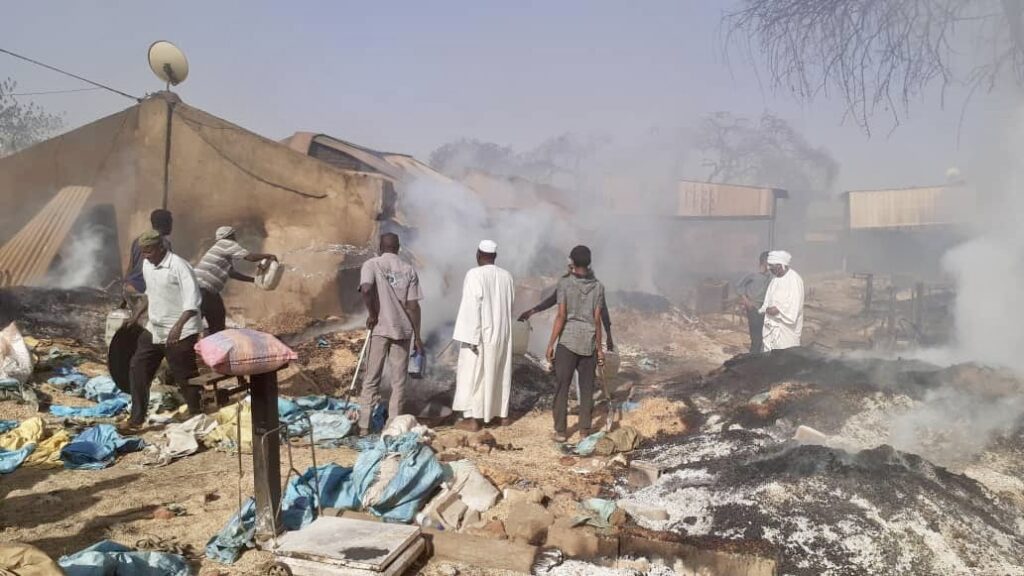UN chief: ‘War and hunger could destroy Sudan’

El Geneina, capital of West Darfur, end of April (Photo: social media)
United Nations Under-Secretary General for Humanitarian Affairs and Emergency Relief Coordinator Michael Griffiths issued a stark warning to the warring parties in Sudan on Friday. He states that the conflict’s aftermath, marked by hunger, disease, and extensive displacement, is perilously close to “consuming the entire country”.
In a press statement from his New York office, Griffiths expressed his concern about the conflict’s impact on South Kordofan’s capital Kadugli, where “food stocks have been fully depleted, as clashes and road blockages” have prevented aid workers from reaching the hungry”.
He continues: “I am also extremely worried about the safety of civilians in El Gezira state, as the conflict moves closer to Sudan’s breadbasket”.
Griffiths’ statement follows the latest situation update posted on Wednesday by the UN Office for the Coordination of Human Affairs (OCHA). In it, OCHA reported that 3.6 million people (Sudanese and refugees) in Sudan sought refuge in other, safer parts of the country. Nearly one million fled to neighbouring countries.
Among them are around 50,000 people who fled the fierce fighting in Nyala, capital of South Darfur, between 11 and 17 August, OCHA said. Griffiths forewarns that, given the current scale of displacement, “a protracted conflict in Sudan could tip the entire region into a humanitarian catastrophe”.
His statement echoed these concerns regarding displacement, stating that “Millions of people have been displaced inside Sudan. Nearly one million others have fled across its borders. As more refugees arrive in neighbouring countries, host communities are struggling.”
Griffiths cautions of the dangers of a prolonged conflict, which include “a lost generation of children as millions miss out on education, endure trauma, and bear the physical and psychological scars of war”.
The UN chief also points to the near-decimation of the health sector, where “Vector-borne diseases are spreading, posing a lethal risk, especially to those already weakened by malnutrition. Cases of measles, malaria, whooping cough, dengue fever, and acute watery diarrhoea are being reported across the country. Most people have no access to medical treatment.”
Only one-fourth of the necessary funding for the revised Sudan Humanitarian Response Plan has been raised, amounting to $658.4 million received as of 23 August. The plan requires $2.6 billion to provide life-saving multi-sectoral assistance and protection services to 18.1 million people by the end of this year, the OCHA update concludes.
The UN under-secretary concluded his statement by urging the international community to respond with urgency: “humanity must prevail”.








 and then
and then